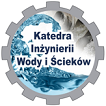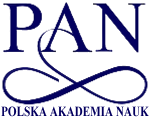XI OGÓLNOPOLSKA KONFERENCJA NAUKOWO – TECHNICZNA
4th INTERNATIONAL CONFERENCE ON SCIENCE AND TECHNOLOGY
Current issues in water treatment and distribution
November 26–28, 2025
Silesian Beskid
Dear Madam/Sir,
In the face of growing climatic, environmental, geopolitical and technological challenges, water is becoming a strategic resource—vital to life and to the security of societies. Water and wastewater systems must be not only efficient on a daily basis but also resilient in emergencies: during droughts, floods, blackouts, cyberattacks or failures. Today, resilience means the capacity to adapt, respond swiftly and restore critical functions.
It is my pleasure to invite you to the next edition of
the National and International Conference “Current Issues in Water Treatment and Distribution – Integrated Water and Wastewater Management 2025,” to be held on 26–28 November 2025.
This year’s theme is:
Water as a Strategic Resource—Resilience of Water and Wastewater Systems in the Face of Crises and the implementation of EU directives: the Drinking Water Directive (DWD) and the Urban Waste Water Treatment Directive (UWWTD).
The new EU regulations are not only instruments for protecting the environment and human health; they are also a driver of significant change in the water and wastewater sector and, consequently, in the socio-economic development of the country. They require higher technological, energy, analytical, managerial and public-health standards, steering the sector towards intelligent, low-emission and disruption-resilient water and wastewater systems.
The Conference provides a forum for exchanging experience, best practices and the latest scientific achievements in water abstraction, treatment and distribution, as well as wastewater collection and treatment. The meeting will bring together representatives of academia, public administration, the water and wastewater industry, local governments and design and operating companies. Our aim is to discuss the challenges facing the sector and to develop rational courses of action.
A special highlight of the programme will be the debate
“Let’s Talk about Water and Wastewater”,
devoted to the effective implementation of EU directives based on a preventive, risk-based approach—with the participation of representatives of central government and local authorities, Polish Waters, the State Sanitary Inspection, the Polish Waterworks Chamber of Commerce, as well as scholars and practitioners.
Organised since 2001, our Conference has become a recognised forum for substantive discussion on water and wastewater management viewed in a comprehensive way: technically, legally, economically and socially. It is traditionally accompanied by a high scientific standard and an interdisciplinary perspective of participants from Poland and abroad.
We invite you to a Conference that will be a space for dialogue, knowledge sharing and building common solutions for the future of water resources.
See you there! You cannot miss it—your voice matters!
Professor Izabela Zimoch, DSc (Eng.)
Why join us
Dlaczego warto uczestniczyć
What measures can be taken to make water a common denominator for science, practice, and government and local administration?
Does wastewater, in the context of the new Directive, synergize with water to improve integrated water management?
The conference is a forum where we will work together to find answers to these questions!!!
Only cooperation between representatives of all groups responsible for water supply security and rational water resource management can respond to future challenges related to water—its availability and quality.
The discussion will be given added weight by the presence of experts from government and local government administration and leading representatives of the water supply and sewage sector.
Unique forms of conferences
 Debate: “Let’s talk about water and wastewater”
Debate: “Let’s talk about water and wastewater”
Legal aspects of implementing Directives 2020/2184 and 2024/3918
How to implement the directives effectively to achieve the objectives of water and wastewater management
Risk management — a system for rational water-resources management and consumer protection
Innovative technologies
Risk governance and practical opportunities for stakeholder collaboration in drinking-water supply
Cybersecurity
Resilience of water and wastewater systems
Modern wastewater treatment plants — new technological challenges, energy self-sufficiency and the circular economy (CE)
Innovative technologies
Sources of financing for the sector.
The debate will be attended by representatives of government and local government administrations, leaders of the water supply and sewage industry, and experts from the scientific community.
The result will be the development of recommendations for the effective implementation of new challenges in the water and sewage sector resulting from current EU regulations.

Warsztaty z zakresu wdrażania Planów Bezpieczeństwa Wody – case studies, gra strategiczna
Zaryzykuj
Strategiczna gra decyzyjna – zapewnij bezpieczeństwo dostaw wody.
Czy jesteś gotowy na kryzys?
Wyobraź sobie: awaria głównego ujęcia, skażenie mikrobiologiczne, blackout energetyczny, cyberatak na system SCADA… W grze nie chodzi o teorię — chodzi o podejmowanie decyzji w czasie rzeczywistym, pod presją, z ograniczonymi zasobami i niepełną informacją.
Cel gry
Symulacja wydarzeń krytycznych w systemie zaopatrzenia w wodę i wspólne wypracowanie strategii reagowania, komunikacji i zarządzania ryzykiem.
Sesje naukowe
Dołącz do sesji naukowych branży wod-kan!
Technologia – Praktyka – Przyszłość!!!
Branża wodociągowo-kanalizacyjna stoi dziś przed wyzwaniami, które wymagają nie tylko sprawdzonych rozwiązań, ale też odwagi do innowacji.
Dlatego zapraszamy Cię do aktywnego udziału z prezentacją w panelach naukowych, które łączą wiedzę ekspercką z praktyką inżynierską.
Zgłoś swój temat problemowy!
Networking
Networking, który łączy branżę wod-kan.
Dołącz do rozmowy, która ma znaczenie!
Technologia to nie wszystko. Liczą się ludzie. Podczas konferencji Aktualne zagadnienia w uzdatnianiu i dystrybucji wody – zintegrowana gospodarka wodno-ściekowa 2025 zapraszamy do udziału w dedykowanych spotkań networkingowych, które stworzą przestrzeń do wymiany wiedzy, doświadczeń i kontaktów.
Wymiana wiedzy i wsparcie eksperckie
Budowanie sieci relacji
SIGN UP NOW!
REGISTRATION
click hereprof. hab. inż. Izabela Zimoch – Przewodnicząca, Politechnika Śląska, tel. +48 606 624 196
mgr inż. Aleksandra Bernaczek, Koordynator, Politechnika Śląska, tel. +48 32 237 26 98
dr hab. inż. Iwona Kłosok-Bazan prof. PO, Politechnika Opolska, tel. +48 601 076 969
dr hab. inż. Małgorzata Wzorek, prof. PO, Politechnika Opolska
mgr inż. Aleksandra Górska, Politechnika Śląska, tel. +48 605 957 200
mgr inż. Agata Koszyka, Politechnika Śląska, tel. +48 535 425 192
dr inż. Światosław Krzeszowski, Politechnika Śląska
dr inż. Krzysztof Boryczko, Politechnika Rzeszowska
Assist. Professor Nicholas Baldacchino, Malta College of Arts, Science & Technology
Professor Andrea Capodaglio, University of Pavia
Professor Agostina Chiavola, Sapienza University of Rome
Prof. dr hab. inż. Mariusz Dudziak, Politechnika Śląska
Professor Radomir Goňo, VSB – Technical, University of Ostrava
Assist. Professor Miroslava Goňo, VSB – Technical, University of Ostrava
Professor Beata Gorczyca, University of Manitoba
Prof. dr hab. inż. Katarzyna Ignatowicz, Politechnika Białostocka
Professor Mustafa Karaboyacı, Suleyman Demirel University
Prof. dr hab. inż. Bartosz Kaźmierczak, Politechnika Wrocławska
Prof. dr hab. inż. Beata Kowalska, Politechnika Lubelska
Professor Myroslav Malovanyy, Lviv Polytechnic National University
Associate Professor Oksana Matsiyevska, Lviv Polytechnic National University
Prof. dr hab. inż. Jacek Mąkinia, Politechnika Gdańska
Professor Vincenzo Naddeo, Salerno University
Prof. dr hab. inż. Stanisław Rybicki, Politechnika Krakowska
Prof. dr hab. inż. Barbara Tchórzewska-Cieślak, Politechnika Rzeszowska
Professor Tatiana Vitenko, Ternopil State Ivan, Pul’uj Technical University
Prof. dr hab. inż. Maria Włodarczyk-Makuła, Politechnika Częstochowska
Prof. dr hab. Małgorzata Wojtkowska, Politechnika Warszawska
Associate Professor Ersel Yilmaz, Adnan Menderes University
Prof. dr hab. inż. Michał Zielina, Politechnika Krakowska
Prof. hab. inż. Izabela Zimoch, Politechnika Śląska
Associate Professor Antonis A. Zorpas, Open University of Cyprus
Prof. hab. inż. Monika Żubrowska-Sudoł, Politechnika Warszawska
dr hab. inż. Tomasz Bergel prof. URK, Uniwersytet Rolniczy w Krakowie
Dr hab. inż. Zbysław Dymaczewski, prof. PP, Politechnika Poznańska
Dr hab. inż. Anna Głowacka, prof. ZUT, Zachodniopomorski Uniwersytet Techniczny
Dr hab. inż. Iwona Kłosok-Bazan prof. PO, Politechnika Opolska
Dr hab. inż. Dariusz Kowalski prof. PL, Politechnika Lubelska
Dr hab. inż. Jadwiga Królikowska prof. PK, Politechnika Krakowska
Dr hab. inż. Ewa Łobos-Moysa prof. PŚ, Politechnika Śląska
Dr hab. inż. Alina Pruss prof. PP, Politechnika Poznańska
Dr. hab. inż. Małgorzata Wzorek prof. PO, Politechnika Opolska
Prof. dr hab. inż. Michał Bodzek, Instytut Podstaw Inżynierii Środowiska PAN Zabrze
Dr hab. inż. Waldemar Sawiniak prof. PŚ, Politechnika Śląska
Prof. dr hab. inż. Karol Kuś, Politechnika Śląska
Prof. dr hab. inż. Andrzej Kotowski, Politechnika Wrocławska
Prof. dr hab. inż. Marian Kwietniewski, Politechnika Warszawska
Prof. dr hab. inż. Rafał Miłaszewski, Uniwersytet Kardynała S. Wyszyńskiego
Prof. dr hab. inż. Janusz Rak, Politechnika Rzeszowska
Prof. dr hab. inż. Tadeusz Siwiec, Uniwersytet Przyrodniczy w Lublinie
Prof. dr hab. inż. Marek Sozański, Politechnika Poznańska
Prof. dr hab. inż. Kazimierz Szymański, Politechnika Koszalińska
Prof. dr hab. inż. Andrzej Urbaniak, Politechnika Poznańska
Key Topics
- development directions in municipal and industrial water treatment, wastewater treatment, and processing of sludge generated by these processes;
- current operational issues in water treatment and distribution, and in wastewater collection and treatment;
- risk management in water supply systems;
- energy efficiency in water utilities;
- legal aspects of water protection;
- water issues in the context of environmental protection, including water monitoring;
- hydraulic and water-quality modeling of water distribution networks;
- leak detection, monitoring, and reduction of water losses in water distribution systems;
- safety and security of water systems;
- water resources management;
- water quality;
- water reuse (water reclamation);
- urban drainage systems;
- urban water and wastewater systems;
- water retention.


CONTACT














